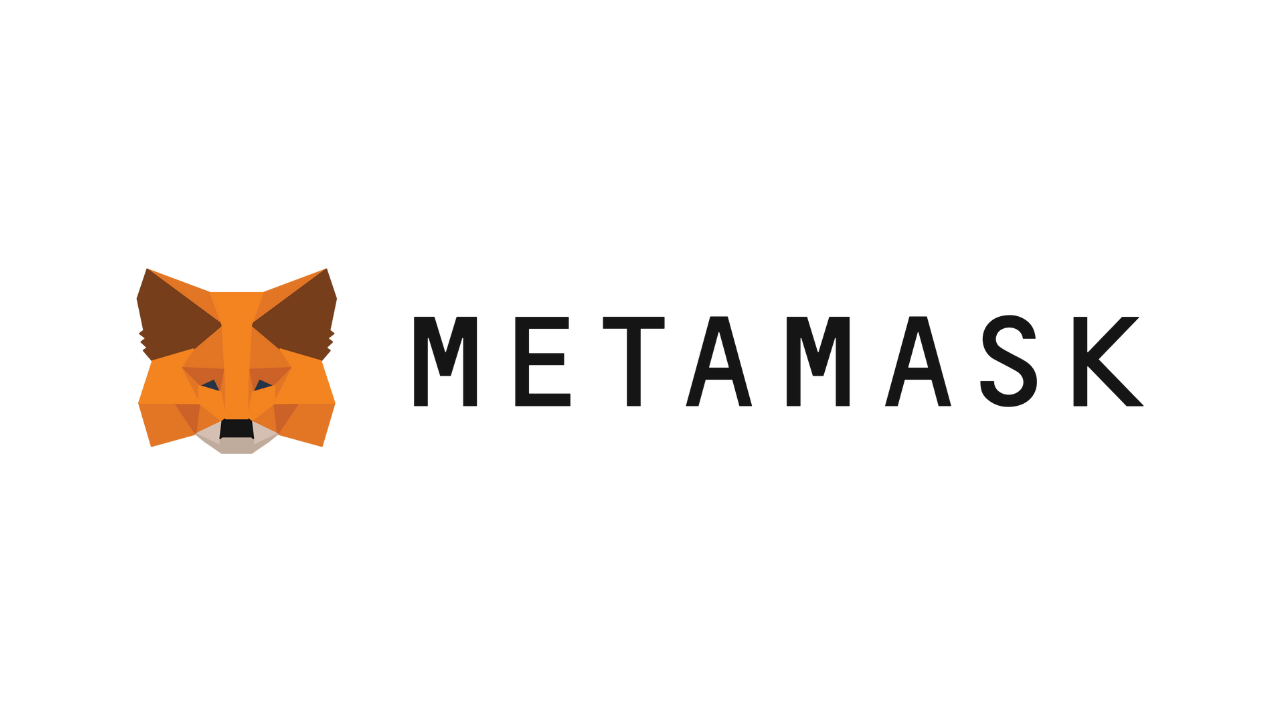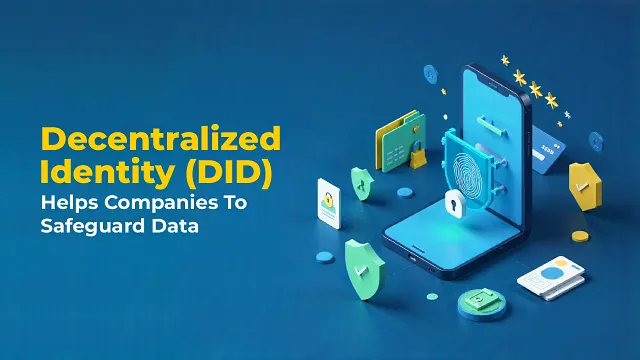Why Businesses Should Adopt Decentralized Identity (DID)
Why Businesses Should Adopt Decentralized Identity (DID)
In the digital era, identity management has become one of the most critical components of business operations. From securing sensitive data to ensuring seamless customer experiences, how a company manages identities can significantly impact trust, compliance, and operational efficiency. Traditional identity systems are often centralized, relying on third-party providers to store, validate, and manage user information. While these systems have served businesses for decades, they also pose significant security, privacy, and operational challenges.
This is where Decentralized Identity (DID) comes in — a transformative approach that empowers users with control over their digital identities while providing businesses with secure, transparent, and verifiable identity solutions. In this blog, we will explore why businesses should adopt DID, its key benefits, applications across industries, and strategies for successful implementation.
A Deep Dive into Decentralized Identity (DID) and Its Impact
Decentralized Identity (DID) is an identity management framework that allows individuals and organizations to control, manage, and share their identity information without relying on centralized authorities. Unlike traditional identity systems, where identity data is stored in centralized databases managed by third parties, DID uses blockchain or distributed ledger technology (DLT) to ensure security, transparency, and immutability.
Key Components of DID:
Decentralized Identifiers (DIDs): Unique, verifiable identifiers created and controlled by users themselves, independent of centralized authorities.
Verifiable Credentials (VCs): Digital certificates that prove certain claims about an identity, such as age, professional qualifications, or company affiliation.
Blockchain Infrastructure: A tamper-proof ledger that enables trustless verification of identity information without revealing unnecessary personal data.
User Control: Users maintain full control of their identity data, deciding when, how, and with whom to share it.
By combining these components, DID creates a secure, privacy-preserving, and interoperable identity ecosystem that benefits both users and businesses.
Challenges with Traditional Identity Systems
Before understanding why businesses should adopt DID, it’s important to examine the limitations of traditional identity management systems:
1. Centralized Data StorageCentralized databases are prime targets for cyberattacks, data breaches, and insider threats. Millions of records can be compromised if a single system is hacked, resulting in financial losses, reputational damage, and regulatory penalties.
2. Lack of User ControlUsers have minimal control over their personal information in centralized systems. They must trust third-party providers to secure, manage, and share their data appropriately.
3. Fragmented Identity VerificationBusinesses often rely on multiple verification sources, such as email, social media, and third-party KYC providers, creating inefficiencies, redundancies, and errors in the identity verification process.
4. High Compliance CostsRegulations such as GDPR, CCPA, and PSD2 require businesses to safeguard personal data and implement strict identity verification protocols. Centralized systems can make compliance costly and complex.
5. Identity Fraud and Data InaccuraciesTraditional systems are prone to identity theft, fraud, and data inaccuracies, leading to operational inefficiencies, legal liabilities, and customer dissatisfaction.
Given these challenges, businesses need a more secure, user-centric, and cost-effective approach, which makes DID a compelling solution.
Key Benefits of Adopting Decentralized Identity (DID)
Businesses adopting DID can realize significant advantages in security, compliance, user trust, and operational efficiency.
1. Enhanced SecurityDID leverages blockchain and cryptography to store identity information securely. Each DID is unique and tamper-proof, reducing the risk of data breaches, identity theft, and unauthorized access. With cryptographically verified credentials, businesses can confidently validate identities without relying on insecure centralized databases.
2. Greater User Control and PrivacyDID enables users to own and manage their identity data, deciding which information to share and with whom. Businesses no longer need to store excessive personal data, minimizing privacy risks and ensuring compliance with privacy regulations.
3. Reduced Fraud and Identity TheftWith verifiable credentials and cryptographic proofs, DID makes it difficult for fraudsters to impersonate identities. Businesses can rely on secure, verifiable, and tamper-proof identity data to prevent fraud and protect their reputation.
4. Streamlined Identity VerificationDID simplifies identity verification processes. By using verifiable credentials, businesses can instantly authenticate users without repetitive KYC procedures, manual checks, or third-party validation. This leads to faster onboarding, reduced operational costs, and improved user experience.
5. Regulatory Compliance Made EasyDID provides a privacy-first identity model that aligns with global data protection laws such as GDPR and CCPA. By reducing the amount of personal data stored and shared, businesses can simplify compliance reporting and minimize legal risks.
6. Interoperability Across PlatformsDID is designed to be platform-agnostic, enabling users to share their identities seamlessly across multiple services, apps, and industries. Businesses benefit from standardized, cross-platform identity verification, reducing integration complexities.
7. Cost SavingsBy eliminating redundant identity checks, reducing fraud, and minimizing compliance overhead, businesses can achieve significant cost savings while improving operational efficiency.
Applications of Decentralized Identity (DID) in Business
DID is not limited to one industry — it can transform digital interactions across multiple sectors:
1. Banking and Financial ServicesBanks and fintech companies use DID for secure KYC, account creation, and transaction authentication. Customers can verify their identity without sharing sensitive personal data, reducing fraud and improving onboarding speed.
2. HealthcareDID enables patients to own and control their medical records, ensuring privacy and secure sharing with authorized providers. Healthcare organizations can verify credentials and patient identities without compromising sensitive data.
3. E-Commerce and RetailE-commerce platforms can use DID to streamline customer onboarding, loyalty programs, and age verification. Users experience faster checkouts while businesses reduce fraud and improve personalization.
4. Travel and HospitalityAirlines, hotels, and travel agencies can leverage DID for digital passports, identity verification, and seamless check-ins, improving customer experience while ensuring security.
5. Enterprise and Workforce ManagementOrganizations can issue digital employee credentials using DID, enabling secure access to corporate systems, physical offices, and sensitive data. This reduces password management issues and improves operational security.
6. Government and Public ServicesGovernments can provide citizens with verifiable digital identities, enabling secure access to public services, voting systems, and social welfare programs without centralized storage of sensitive data.
Steps for Businesses to Implement DID
Adopting DID requires careful planning and execution. Here’s a step-by-step approach:
1. Assess Current Identity SystemsEvaluate existing identity management processes, identify security gaps, inefficiencies, and compliance challenges.
2. Define Use CasesDetermine how DID will be used in your business — whether for customer onboarding, employee access, healthcare records, or financial transactions.
3. Choose a DID Platform or ProviderSelect a reliable DID framework or service provider that aligns with your business needs, supports interoperability, and ensures regulatory compliance.
4. Issue Verifiable CredentialsDesign and issue verifiable credentials for users, employees, or partners. Ensure that these credentials can be cryptographically verified and shared securely.
5. Integrate with Existing SystemsSeamlessly integrate DID with your existing platforms, apps, and services to ensure smooth adoption and minimal disruption.
6. Educate UsersTrain users on how to control their digital identities, share credentials securely, and interact with the DID system. User adoption is key to success.
7. Monitor and ImproveRegularly monitor system performance, security, and user adoption. Update and refine DID processes to meet evolving business and regulatory requirements.
Challenges of Adopting DID
While DID offers numerous benefits, businesses should also consider potential challenges:
Technical Complexity: Implementing blockchain-based identity solutions requires technical expertise.
User Adoption: Users may be unfamiliar with decentralized identity concepts, requiring education and support.
Interoperability Standards: Ensuring compatibility across platforms and services may require adherence to emerging standards.
Regulatory Considerations: Businesses must ensure DID implementation aligns with local and international regulations.
Despite these challenges, the long-term benefits of security, privacy, efficiency, and trust make DID adoption highly worthwhile.
Conclusion
Decentralized Identity (DID) represents a paradigm shift in digital identity management, offering businesses a secure, user-centric, and efficient alternative to traditional systems. By adopting DID, organizations can:
✦Reduce fraud and identity theft
✦Ensure regulatory compliance with minimal overhead
✦Improve customer onboarding and user experience
✦Enable seamless cross-platform identity verification
✦Lower operational costs and enhance trust
In an increasingly digital and privacy-conscious world, DID is not just a technology trend — it’s a strategic necessity for businesses looking to protect data, empower users, and stay competitive.
By implementing DID, companies can redefine how identities are managed, creating a safer, more transparent, and user-friendly digital ecosystem.
Why Businesses Should Adopt Decentralized Identity (DID) was originally published in Coinmonks on Medium, where people are continuing the conversation by highlighting and responding to this story


